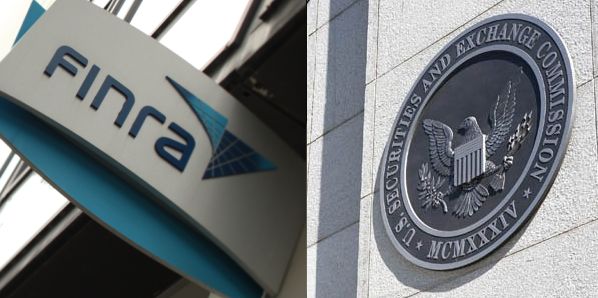A government watchdog agency is calling on the
Securities and Exchange Commission to strengthen its oversight of the
Financial Industry Regulatory Authority Inc., the self-regulatory organization for brokers, including reviewing the salary levels of Finra executives.
In a
report released Wednesday, the Government Accountability Office, the investigative arm of Congress, said that Finra should conduct “retrospective reviews” of its rules to determine whether they are effective.
“By not conducting these reviews [of existing rules], Finra may be missing an opportunity to systematically assess whether its rules are achieving their intended purpose, and take appropriate action,” states the GAO report, which was mandated by the Dodd-Frank financial reform law. “By not reviewing what steps Finra takes in reviewing its existing rules, SEC may not capture sufficient information to form an opinion about Finra's efforts to review its rules.”
The GAO also noted that the SEC has not kept a close eye on Finra's pay levels or internal operations.
“SEC has conducted limited or no oversight of other aspects of Finra's operations, such as governance and executive compensation,” the GAO report states. “According to SEC, these operations were not historically considered due to competing priorities and resource constraints. Specifically, SEC officials said that SEC focused its resources on Finra's regulatory departments, which were perceived as programs that have the greatest impact on investors.”
Within the GAO report, the SEC indicated that its Office of Compliance Inspections and Examinations is reviewing “Finra executive compensation, including retirement plans and incentive compensation for its executives.” The SEC also is reviewing Finra's governance practices.
Finra maintains that the SEC oversight it already receives is strong but agreed with the GAO that it should be reviewing its rules.
“FINRA believes the report demonstrates the broad and robust oversight the SEC provides to our operations, with annual or continuous review of our core regulatory programs,” Finra said in a statement. “We agree with GAO's recommendation that a retrospective review of FINRA rules could be valuable, and we'll work with the SEC to implement such a process.”
While Finra is in the midst of
expanding agenda, the GAO report was the second criticism of Finra to come out this week.
On Tuesday, a government reform group sent a
letter to the members of the House Financial Services Committee urging it to reject a bill that would authorize one or more self-regulatory organizations for investment advisers. The SRO measure is scheduled for a hearing before the panel June 6.
“Finra's inherent conflict of mission, its lack of transparency and accountability, and its excessive expenditures on executive compensation and lobbying illustrate why creating an SRO for investment advisers will not serve the interests of investors, shareholders, consumers or other stakeholders,” stated the letter from the Project on Government Oversight. “In addition, creating a private self-regulatory group for investment advisers would create significant costs and oversight challenges for the SEC.”
The POGO letter noted that Finra’s top 10 executives received nearly $13 million in pay and benefits in 2010.
Finra, which is promoting itself to fill the role of adviser SRO, said that the government oversight group's letter ignores a key point in an SEC study in January 2011 about adviser oversight. The SEC report said that the agency lacked the resources to examine annually more than the 8% of the nearly 12,000 registered advisers.
The study recommended three ways to increase adviser examinations: allow the SEC to charge user fees for exams, authorize an SRO or expand Finra's authority to include advisers dually registered as brokers. Each option requires congressional authorization.
“POGO's position is not an acceptable or realistic response to the critical need to fill an untenable gap in investor protection in the investment adviser space,” Finra wrote in an e-mailed statement. “POGO seems to be OK with a regulatory regime where registered IAs are examined only once every decade, with approximately 38% having never been examined. One or more SROs overseen by the SEC is a proven way to augment government resources and to provide the needed oversight.”
Finra examines about 58% of brokers under its aegis each year, according to House Financial Services Committee Chairman Spencer Bachus, R-Ala., who wrote the SRO bill.
The GAO report, however, may become fodder for investment adviser advocates opposing the SRO bill.
“There might be some points in there that might be used in this debate,” said Skip Schweiss, managing director of advisor advocacy and industry affairs at TD Ameritrade Institutional.







